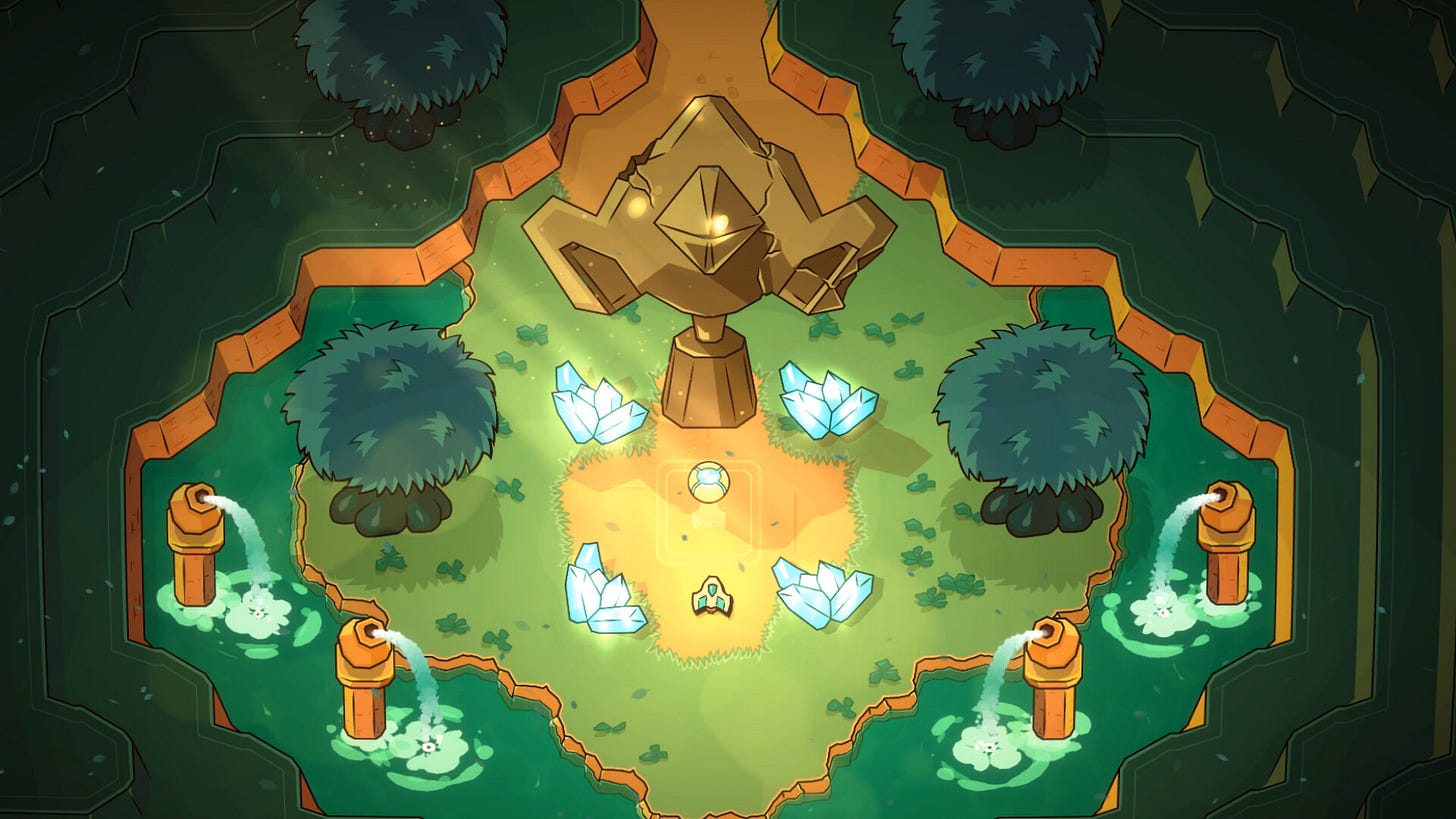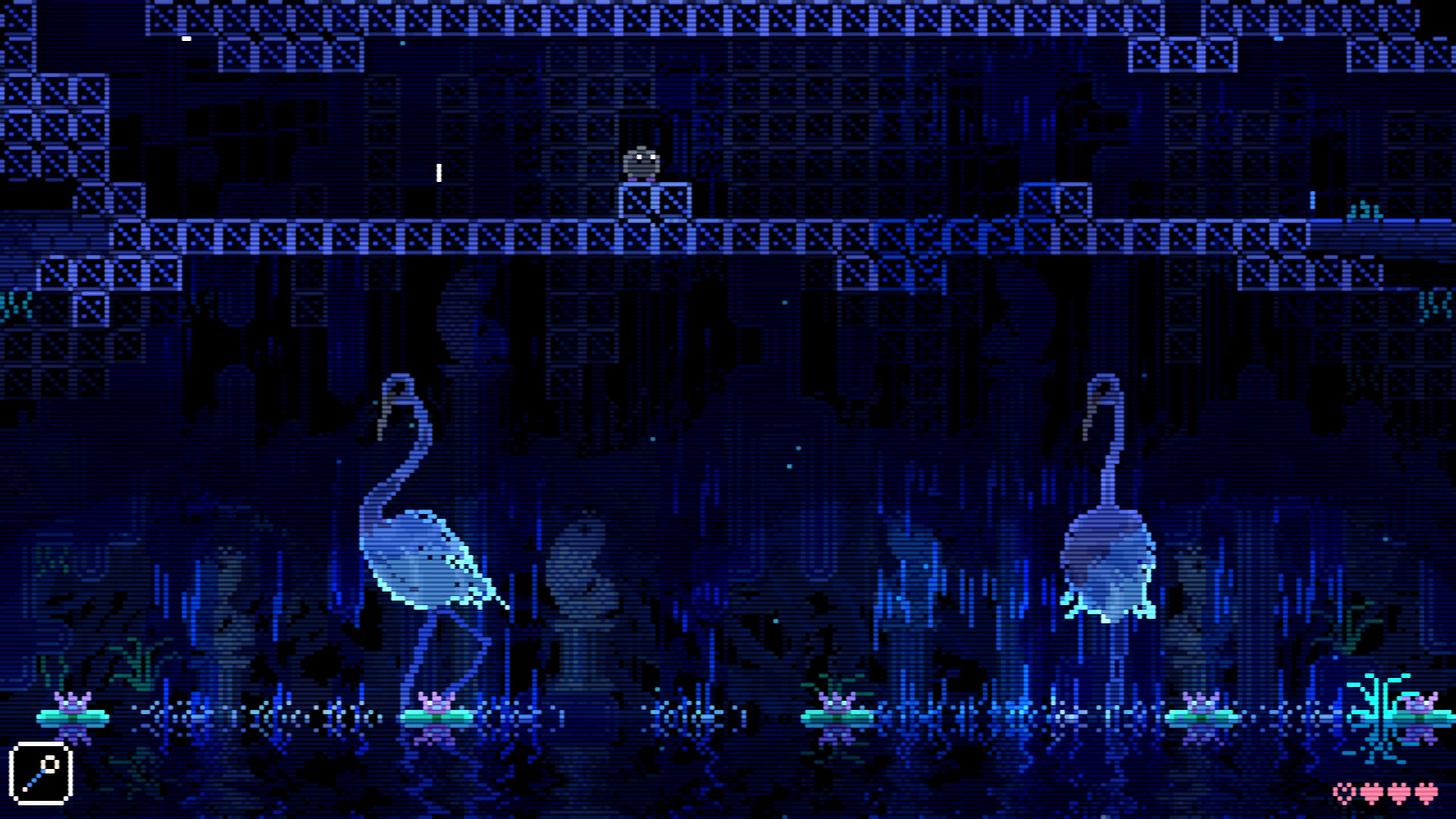Hello there! It’s hard to believe, but 2024 is already six months through, so it’s time to present our prestigious GOTHY awards, for the best games of the half year. And where our favourite games are on Steam they’re also going cheap, since (Australian) winter is also the time for every single game to be on sale.
What to play
Game Pass this week gets goofy first-person adventure Journey to the Savage Planet, as well as party platform fighter Nickelodeon All-Star Brawl 2.
It’s a new month, and in July PlayStation Plus subscribers can add Borderlands 3, NHL 24 and Among Us to their libraries.
The Steam Summer Sale is on, and what can I say except that practically everything is discounted. The only advice I have is to try to be stronger than me; don’t buy games just because they’re very cheap or seem to be offering a rare opportunity to get them for less than usual. You still only have so much time to play games, and one 40% off title you really want is going to work out better than seven 90% off titles. Except Disco Elysium for $6, you should absolutely get that. And Celeste for $3, even if you already have it on Switch.
Time to get GOTHY
By Tim
It’s always tough making “best games” lists, not only because of the incredibly broad media that contains so many genres and categories as to make most combinations totally incomparable, but also because of the guilt. I’ve played so many great games already this year that I don’t really want to leave any off. Plus one of my pupils keeps drifting over to the list of well received games I haven’t played yet, which would probably have made the list if I had infinite time. Is it the games’ fault I don’t have infinite time?! Anyway, here’s my excruciating but nevertheless indisputably correct list of: the Games Of The Half Year.
Prince of Persia: The Lost Crown
I’m a lifelong fan of this series and I’m also very fond of metroid-likes, so I was thrilled to discover that The Lost Crown is an exemplar of both, in addition to being brilliant in its own right.
The fictional Mount Qaf is a wonderful setting that blends Iranian history and Arabian mythology with the series’ penchant for vicious traps and time distortion nonsense. The new protagonist Sargon brings a fresh and edgy vibe that marries the acrobatic focus of recent games with the methodical platforming of old. Navigating ruins and exploring grand chambers feels great, as does the fast and reflex-intensive combat, all driven by a smart upgrade and skill system.
Metroid-like veterans will know these games are all about the map, specifically using it to spot dead ends you may now be able to access with your new gear, and Lost Crown produces some great innovations here that should be adopted as genre staples. Most importantly you can take photos of any situation and pin them to the map, so you always remember the nature of the impasse. That feature alone has probably saved me hours of confused back-tracking.
Pepper Grinder
A big drill that lets you tunnel through soft earth is a common enough item or power-up, but in Pepper Grinder it’s the basis for the entire game. And while it took me some time to get used to the unique locomotion involved, I ended up loving the near-endless variety of imaginative drill applications the game throws at you, not to mention the quirky weirdo world filled with pirates, treasure, moles, monsters and gross little bipedal narwhal guys.
Pepper Grinder has an arsenal of drill moves that the opening levels gently introduce, including boosting out of the earth to make high jumps, skimming across bodies of water, and latching on to grappling points. But soon enough your proficiency is tested with gruelling but exhilarating sequences, interspersed with unique gimmicks such as riding a drill-powered snowmobile, and huge bosses with patterns you need to memorise before you can take them down. Usually by drilling.
It’s an unconventional take on the 2D platformer, but an especially textural and gratifying one. This is the kind of game where I would often finish a level by the skin of my teeth, and then dive straight back into it again because I wanted to perfect it. And pleasingly Pepper Grinder rewards that instinct with hidden collectible coins that can buy keys to secret levels, loot that can be traded for health boosts, and special rewards for completing levels quickly and efficiently.
Final Fantasy VII Rebirth
Remakes may be ubiquitous but 2021’s Final Fantasy VII Remake was something else. Thanks to a shocking meta-narrative twist in which (spoilers) antagonist Sephiroth becomes aware of this being the second time around, it really had its cake and ate it too in terms of cherishing the past and moving tech and design forward. But Rebirth takes things even further.
Narratively we’re once again hitting the main beats of the original, including one of the most iconic and traumatic events in RPG history, but with twists that really swing for the fences. The game dives deep on Cloud’s ignominious history which was barely touched on in the original game, but more notably restructures the whole thing as a wonderful open world filled with secrets to find, quests to complete, knowledge to uncover and endless systems to explore.
From the layered character customisation and combat systems that feed seamlessly into one another, to the completely optional collectible card game that I quickly became obsessed with, this is unexpectedly a much broader, deeper and more open game than its predecessor. While I was anticipating the middle portion of a very good remake project, what I found was an astonishing RPG that more than stands on its own merits, and even overshadows part one for ambition and creativity.
Minishoot’ Adventures
Minishoot’ Adventures is a game with a frankly terrible name, but everything else about it is phenomenally executed. You play as an adorable little floating ship, drifting and boosting through a cheerful overworld / dungeon setup inspired directly by the Zeldas of the early 90s. Various enemy types each follow their own movement styles and bullet patterns, making combat a matter of slick dodging and skillful aiming.
Moving around just feels great in this game, and the level of polish from a team of two developers is astounding. The music and audio design in particular is a constant joy, with chunky bullet smacking sounds, crunchy enemy explosions, tinkling debris and a dynamic score giving you loads of aural feedback as well as a sense of sweeping adventure.
More than anything I just love how well the flying and shooting gameplay has been melded with an old-school action RPG progression. There are item upgrades that open up new traversal and combat possibilities, a full skill tree to improve your loadout, hidden friends to rescue and treasures to find, high-speed obstacle courses, massive bosses and a big map to navigate. There are also a number of difficulty and accessibility options if you find the bullet-dodging too hectic (or not hectic enough!).
Balatro
A rougelite where you make increasingly powerful poker hands, Balatro has the makings of a niche favourite but unexpectedly became a mainstream hit almost immediately. Everything that makes a good rougelite is here, with each run seeing you create synergies by strengthening or eliminating cards while rule-changing Joker cards buff your builds or introduce elements of chance, but I think the familiar card setting brought in a lot of people who had never played a more action-focused or dungeon crawly rougelike. After all it does look like the kind of video poker game your dad might have played on DOS. But haunted.
Between the familiar mechanics, drag-and-drop controls and the endorphins of making more money on each round, it’s an extremely easy game to get into. But meeting the earnings requirements can get tough fast, and pulling off a win against a powerful boss blind is not guaranteed, which turns your attention to the various card packs you can buy (not just of standard cards, but tarot and planet cards that have their own effects) to start planning and gambling. It’s a simple but inspired on-ramp to rougelite town.
Balatro is the ideal kind of game to keep on your Switch or Steam Deck at all times, and I suspect it will take off immediately once it hits phones. The difficulty spikes are real, but each time you’re wiped back to the start you inevitably have the feeling that your next run will be the run.
Animal Well
On the surface Animal Well may be competent metroid-like with a spooky animal theme, but dig a little deeper and you’ll find a complex latticework of puzzles combined with interesting powerups, a focus on physics play and a near total lack of combat. As a weird little blob guy, you’re exploring the well with little to no explicit direction, with every screen littered with puzzles and secrets. Some of these require specific powerups from around the world (a yo-yo, a slinky, a frisbee), while others just need lateral thinking or knowledge cleaned from other sections.
It helps that the game sports a brilliant aesthetic, evoking old CRT technology while ramping up the animation, effects and colour beyond what would have been possible in the 80s and 90s, resulting in something that resembles a vibrant but haunted VHS recording of a cursed video game. The main bosses, which include a massive ghost dog and a bleeding chameleon, are legitimately off-putting, but the game is also filled with calmer animals like herons and capybara, as well as indifferent beasts that can help or hinder you.
Some of Animal Well’s broadest and deepest mysteries are designed to be solved with the co-operation of a whole community of players, which isn’t the kind of thing that appeals to me, but it does have a tendency to create a vibe within the game’s world that I love; a feeling that something bigger than your character, bigger than the game even, is buried just out of sight, informing and engendering the whole thing but only ever appearing briefly in riddle form.










